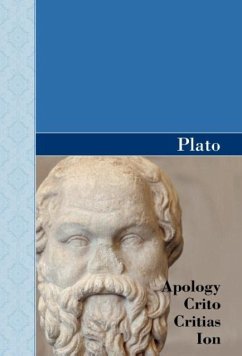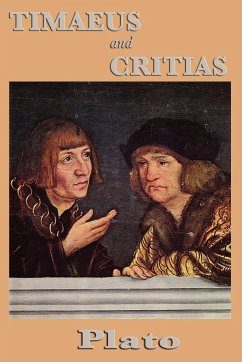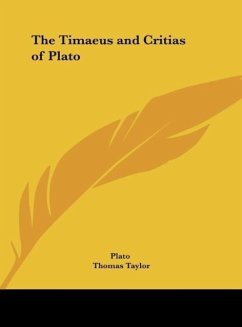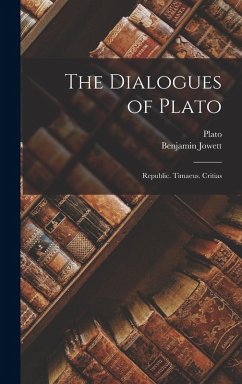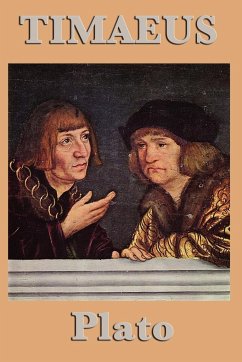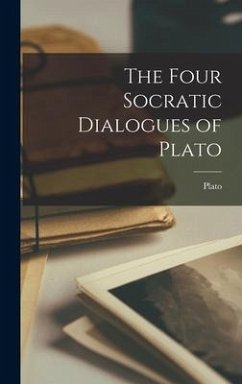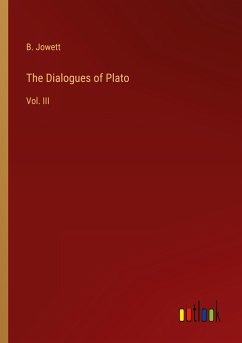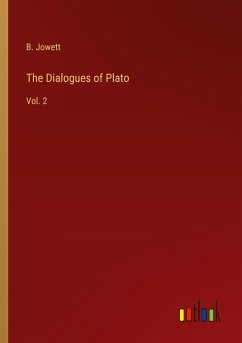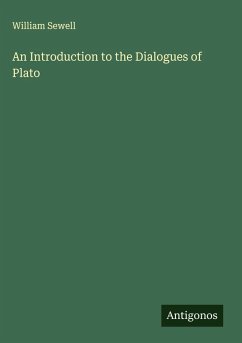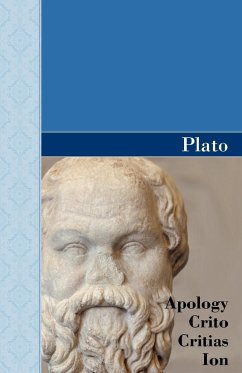
Apology, Crito, Critias and ION Dialogues of Plato

PAYBACK Punkte
8 °P sammeln!
Apology Possibly one of Plato's first works, the Apology presents Socrates' own defense and in the process helps define his philosophy. He wished to change the way in which his contemporaries viewed the world and believed "the unexamined life is not worth living." Crito Socrates is sentenced to death, but his friend Crito bribes the guards to enable is escape. Crito feeling that the sentence is unjust sees no wrong in avoiding it with another injustice, while Socrates disagrees. In their conversation the probe the foundations of civil and moral law as well as the social contract theory of gove...
Apology Possibly one of Plato's first works, the Apology presents Socrates' own defense and in the process helps define his philosophy. He wished to change the way in which his contemporaries viewed the world and believed "the unexamined life is not worth living." Crito Socrates is sentenced to death, but his friend Crito bribes the guards to enable is escape. Crito feeling that the sentence is unjust sees no wrong in avoiding it with another injustice, while Socrates disagrees. In their conversation the probe the foundations of civil and moral law as well as the social contract theory of government. Critias One of the late and unfinished dialogues, Critias is the original account of the rise and fall of Atlantis, an ancient, mighty empire ruled by the descendants of Poseidon. It is thought that the account is not historical, but rather an illustration of Plato's vision an ideal society. Ion In this short work Socrates discusses with Ion, a successful actor, his ability to interpret Homer. Thus arise two questions: First is there an art of "poetry as a whole" and consequently: Does philosophy only exist in the use of words? The dialogue thus delves into the puzzling nature of human creativity.





